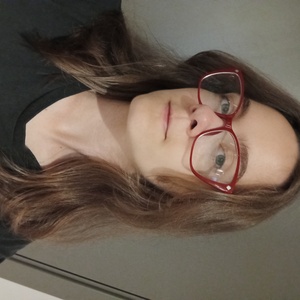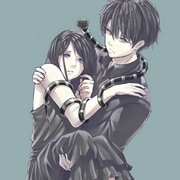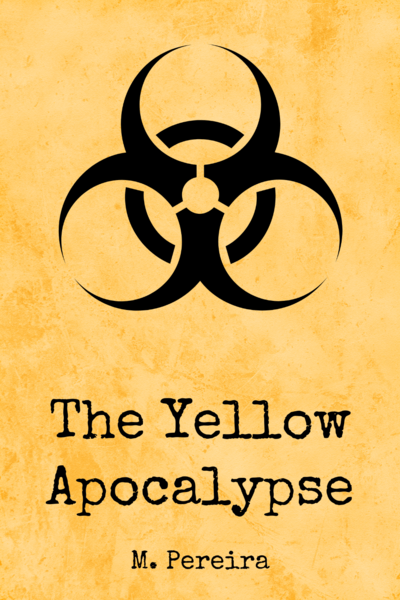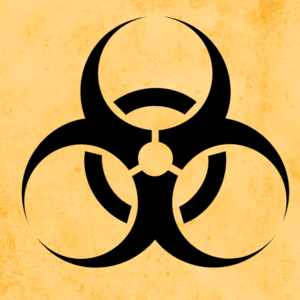The pick-up’s tires screeched in front of the School Hospital’s entrance. Two nurses came out breathless, asking what the problem was. Jacob pointed at the lady lying in the trunk, tied up and grunting. “Infected,” he said.
While one of the nurses returned to the building to bring out a stretcher, the other one helped Jacob untie the sick lady.
“Careful, she is hungry.”
“Everyone is, Seu Jacob. And the girl in there? Dinah, is it?”
If there was any advantage, any good side to all the disgrace the world had been going through, it was the shrinking of communities. Of course, seeing entire families taken by the Plague was sad and hard, but among those who remained grew a feeling of brotherhood, of affinity and respect that Jacob had only witnessed with his own family. And on Sundays.
“That’s Dinah, yes. She has a fe... flu. She has the flu.”
The nurse stopped for a second, not averting his eyes from the infected old lady. Immediately afterwards, he continued to untie her: “Flu.”
The other man arrived and the three, together, managed to immobilize the diseased on the stretcher.
“Let’s take her to the terminal area… there’s not much we can do for her…”
“Do you want me to bring another stretcher for the girl?”
“No need, I’ll take her myself.”
Jacob opened the pickup door and held his hand to the little one’s forehead. It was hot, hotter than when they left the farm. That wasn’t good. He needed to talk to Leah soon. Maybe the sunbaths could delay the disease until… dammit, they had found a healthy plant, for the love of God!
Picking Dinah up carefully, he turned around and stared at three men in uniforms. Two of them, wearing helmets with the initials P.E., held IA2 rifles, made right there in the city, in the only still-functioning arms factory in the country.
The third one was Lieutenant Colonel Araújo, who Jacob already knew.
“Araújo, what is going on?”
“Good morning, Jacob. I see that Dinah isn’t well.”
“No, she isn’t. I need to take her to the hospital. Leah will know what to do.”
“We both know that if she’s infected, neither Dr. Leah nor anyone else will be able to do anything.”
Holding back tears, Jacob continued:
“It’s just the flu. You’ll see, it’s just the flu… and if it isn’t… well, maybe there is a cure. A healthy banana tree grew in the farm and Leah can…”
The Lieutenant Colonel raised his hand sharply, in a clear gesture for Jacob to shut up.
“Soldier, take the girl inside. Put her in observation in an isolated room. You, go with him.”
Upset, Jacob let them take her. He didn’t understand what was going on, but it wasn’t wise to argue with three armed military officers.
When the men had already gone inside, Araújo continued:
“You will give me that healthy bunch of bananas, the banana leaf too… you will go back to the farm and set fire to the whole field.
“But of course I won’t! What are you talking about? This can be our chance to cure this Plague! Do you have any idea how much we’ve sacrificed to get to this point?”
Araújo, with a steady gesture, placed his hand on Jacob’s left shoulder. Looking him in the eyes, with the calm that only years of war can give a man, he said:
“I am not asking.”
Ω
“Let’s see if I understand this, Doctor — you’re telling us there’s a real chance that the Plague will infect the marine fauna and flora?”
“It is already happening, Commander. What I’m saying is that the Plague will sooner or later mutate and then infect the plankton. Some say we’re already doomed, since we can’t find a way to fight the fungus and it continues to devastate the terrestrial flora.
“If it gets to the plankton, besides the destruction the basis of the marine food chain, the oxygen production will fall drastically. In a few years, those who aren’t infected will die suffocated in carbon dioxide.”
“That’s not an optimistic scenario, Doctor.”
“No, it isn’t.”
Shuffling in his chair, the other Captain of Sea and War retorted grumpily:
“You took part in Embrapa’s study group that originated the most devastating strain of the fungus, didn’t you, Doctor?”
Leah felt a pang in her chest. She hated that subject and, still, she couldn’t exempt herself from the responsibility. Indeed, she had been a visitor researcher at the center that had genetically altered the fungus to fight the bananas’ overtaking of other fields. For the thousandth time, she repeated:
“I was doing what I was told, Captain. I had no part in the political decision to use the fungus.”
“Still, you were one of the most active researchers in the group, from what I saw in the report. Is that correct?”
Swallowing her pride with difficulty, she nodded.
“So, you are possibly the living human being who best knows the enemy, do you agree with me?”
“Well, before we lost our satellite links, we had news of very advanced research in Atlanta and Paris. With the war between the United States, India and China spreading throughout Europe, we no longer have any hope to contact them. That way, it’s very likely that you’re right. But what is the motive behind this?”
“With so few people available, Doctor, we don’t have the luxury of losing you. So, we’ll send you to the safest place we have, where you’ll be able to continue your researches without running any risk yourself.”
Without holding back a smile, Leah could only stutter:
“Noronha…”
Ω
Outraged, the men helped Jacob to set fire to the plantation. It wasn’t a hard task — the dry soil and the withered plants didn’t oppose the flame’s hot kiss. It was just a matter of a few hours before the entire farm was a bunch of ashes.
“I’ve told you not to worry! Everyone will be relocated to farms in Cristina and São José do Alegre! Nobody will stop working.”
The revolt was visible in their faces, but those men used to follow orders. If the boss said to burn, they’d burn.
Ω
It was late at night when Jacob managed to return to the hospital. Covered in soot, with his lungs aching after inhaling so much smoke, he asked the receptionist nurse about Dinah. She pointed to a room at the end of the hall and he ran there.
When he opened the door, he saw Dinah sitting on the bed, laughing at something Leah had said. Something about dolphins.
Both looked at him surprised but overjoyed.
“Dad!”
“Hi, my love! Are you feeling well?”
“Yes. Leah gave me medicine and I got better.”
He saw in Leah the enchanting smile that had gotten through all those months of suffering since his wife had been infected. It was for that smile that he wished to live, even when the farms withered. Even when Rachel died.
They had left the guilt behind a long time ago, but they still didn’t have the guts to tell Dinah.
“A virus. It’s not the… it’s nothing serious.”
Relieved, he felt the weight of the world lift from his back.
“And I have more great news — how about a trip?”
Ω
For several years they lived quietly in Fernando de Noronha. Some researchers came and went, so that the population of the island never exceeded a hundred inhabitants, counting the support personal and a few natives that hadn’t been removed.
The weirs and the desalinator provided quality water and the sewer treatment station was checked monthly.
Despite counting on some subsistence farming, supply ships came from Recife every three months.
The research continued and Jacob never told Leah about the episode of the healthy bananas.
After a year, the supply ships simply stopped coming. Contact through radio halted as well and the world seemed to fall in total silence.
Without lab supplies, the research were slowed down and the community organized to make schools (after all, not even in the worst disgraces the instinct of procreation is totally eliminated) and a city hall. Jacob was the first to be elected.
When Dinah completed fifteen years, one of the kids at the kindergarten where she worked had a high fever. That went on for days, until they tested the kid and it was proved that the Plague had finally reached Noronha.
Some residents, horrified, escaped the archipelago at night, in life and rescue boats, only to disappear at sea.
The ones that stayed fell one by one, even with the attempts of Dr. Leah and the few researchers that were left. Not even the sunbaths delayed the disease like they did years before.
Deep coves were dug, where the zombies’ bodies were thrown for cremation.
Jacob resisted as much as he could, but, at last, in a hot and moonlit night, he poured chloroform on a piece of tissue and forced it against Leah’s nose. Weak and without control of her movements, she struggled little while grunting. She fell asleep and was carried to the ditch, where the fire was already burning.
Ω
Years later, Dinah was brushing her father’s long and disheveled white hair. With their backs to the dry island, they remembered how life in the continent was, when there were devices that played music. And they remembered the banana plantations.
“Oh… I miss those delicious bananas, dad…”
“Memory tricks us, Dinah. The bananas from your childhood were already withered and dry.”
“The last one I ate wasn’t. It was delicious! Too bad I had a fever that night and couldn’t even tell you… it was a healthy tree, like I had never seen. In that field that you burned.”
Jacob cried.











Comments (1)
See all